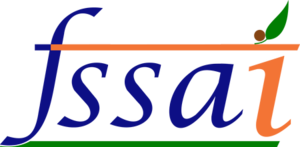

FOOD LICENCE REGISTRATION CONSULTANCY PORTAL / खाद्य लाइसेंस पंजीकरण परामर्श पोर्टल
Helpline No: +91 7202090999






FSSAI stands for the Food Safety and Standards Authority of India, an
autonomous regulatory body established under the Food Safety and
Standards Act, 2006. It operates under the Ministry of Health and Family
Welfare, Government of India. FSSAI is responsible for regulating and
supervising food safety and standards in India. It ensures that food
products meet quality benchmarks and are safe for consumption by issuing
licenses, creating guidelines, and conducting inspections. The Food
Safety and Standards Authority of India (FSSAI) is an autonomous body
under the Ministry of Health & Family Welfare, Government of India,
responsible for regulating and supervising food safety and hygiene in
India. It ensures food safety, quality standards, and prevents
adulteration in food products by regulating their manufacturing,
storage, distribution, sale, and import. Every food business operator
(FBO) must have an FSSAI license or registration, which is categorized
into three types: Basic Registration (₹12 lakh turnover), State License
(₹12 lakh – ₹20 crores), and Central License (above ₹20 crores). The
registration process involves applying through foscos.fssai.gov.in,
filling Form A/B, submitting required documents, undergoing inspection,
and obtaining a 14-digit license number, which must be displayed on food
packages. FSSAI certification ensures legal compliance, customer trust,
business expansion, and avoids penalties. Non-compliance can lead to
fines up to ₹5 lakh and legal action for selling unsafe food,
misbranding, or not meeting standards.
FSSAI sets food safety standards based on scientific research, risk
analysis, and international best practices to ensure food quality across
India. It enforces regulations through food safety officers (FSOs) who
conduct inspections, sampling, and audits to check compliance. If
violations are found, FSOs can issue improvement notices, suspend or
cancel licenses, and impose fines or legal actions. The authority also
promotes food safety awareness through initiatives like Eat Right India,
FoSTaC (Food Safety Training and Certification), and hygiene rating
schemes. FSSAI plays a crucial role in framing guidelines for food
additives, labeling norms, packaging regulations, organic food
standards, and genetically modified food policies. It collaborates with
state governments, food businesses, and international bodies like WHO
and FAO to strengthen food safety measures. Additionally, FSSAI has
introduced FoSCoS (Food Safety Compliance System) for digitalized
compliance management, enabling online application, renewal, and
modification of licenses. Compliance with FSSAI not only ensures public
health but also boosts consumer confidence, international trade, and
food business growth.